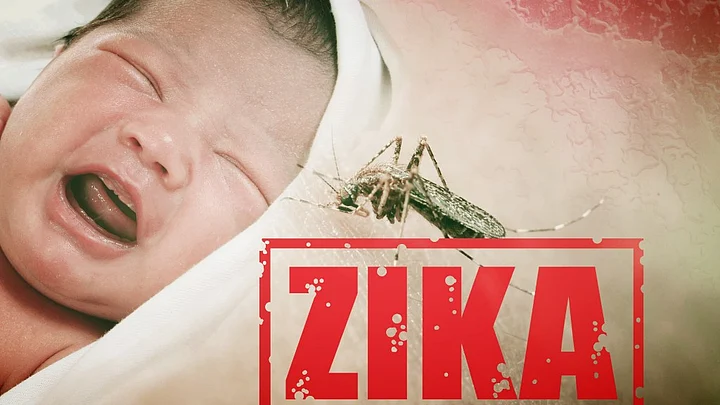As Zika continues to bite Singapore, from 0 to 242 cases in ten days, the anxiety around the virus in India is surging too.
A new study in medical journal, The Lancet, tries to predict where the Zika virus is going to make an appearance next. Will it be China? Hong Kong has already reported its first Zika case. Africa - the original ‘home’ of the virus? Or India, with its billion-plus population, a shabby public healthcare system, robust travel to Singapore and favourable climate for the aedes aegypti mosquito to breed?
Whatever be the course of the virus, remember that Zika is no dengue or Ebola. Also, a look-back at major health outbreaks in the last seven years show that scientists have been enormously wrong about disease predictions.
Ebola, MERS and H1N1 Were All Touted To Wipe Out Humanity - What Happened?
Disease predictions are based on mathematical models- the accuracy will be as good as the numbers that are fed into it. But in case of new viruses, the speed of spread, scale of mortality are key numbers which are known only years after an outbreak and these missing links result in statistics which are way off the mark.
Case in point:
1. H1N1 - April 2009
The World Health Organisation (WHO) softened its very definition of a pandemic a little before the spread of H1N1, eliminating the need for a virus to cause “enormous morbidity and death” and said in as many words that the virus “could threaten humanity”.
It was even accused by many, including the former head of health at the Council for Europe for “being under the influence of the industry and faking the pandemic.”
A study done by the Oxford University in 2014 found that Tamiflu “did nothing to halt the spread of H1N1”. Roche, the drug’s Swiss pharma major was accused of “sloppy science” for “giving a false impression of the drug’s effectiveness.” UK alone spent £500 million on stockpiling it and then later trashing it.
The former head of health at the Council for Europe was among the many credible experts to accuse the WHO of “faking” the pandemic.
2. MERS - May 2013
The World Health Organisation called MERS or the Middle Eastern Respiratory Syndrome with a 50 to 60% fatality rate a “threat to the entire world” - at that time the “deadly virus” had killed 27 people in the Middle East, mostly Saudi Arabia.
Margaret Chan, the WHO’s Head said at an annual meeting, “ We understand too little about this virus when viewed against the magnitude of its potential threat. We do not know where the virus hides in nature. We do not know how people are getting infected. Until we answer these questions, we are empty-handed when it comes to prevention. These are alarm bells. And we must respond.”
Since 2012, when MERS was first detected, the virus killed 102 people in Saudi Arabia and about 30 in South Korea when it spread in 2015.
3. Ebola- August 2014
As of April 2016, this deadly virus affected more than 26,000 people in Africa and killed over 11,000 of them.
Ebola’s rampage in Western Africa was truly horrific. The virus was fatal in 60 to 70% of the cases- death was painful, in isolation and after prolonged suffering.
Right under the World Health Organisation’s nose, Ebola was allowed to reach epidemic proportions in countries which didn’t have the resources to fight it.
Ironically, in the fall of 2014, when America’s top research body, Centers for Disease Control and Prevention (CDC), raised an alarm predicting a whopping 1.4 million people around the world would be infected by the disease (remember it was known to kill 60 to 70% of affected people), the death rate and infections (though high) were restricted to Africa.
Many experts believe that the aim of the alarm is to grab attention and get accurate disease response. But is this dangerous line of thinking warranted?
India Is a Hub For Mosquitoes But There Might Be Immunity Against the Virus
Even though past predictions of major diseases have been horribly wrong, will Zika be the infant monster for pregnant women in India?
Virus expert and former Director of Mumbai’s Haffkine’s Institute, says, “India managed the supportive treatment for SARS, H1N1 and birdflu, there’s no need to create a stir this time.”
Zika is a cause for concern in Brazil and has spread to Florida but it is not showing similar levels of complications in Columbia. That’s surprising. Has the virus lost its teeth? Is it already burning down? We don’t know, we cannot predict and we most certainly shouldn’t panic.Dr SM Sapatnekar, Epidemiologist, Former Director, Haffkine Institute
Zika has spread to India before. Almost a decade before it was officially identified, in 1953, a study done by Indian scientists found that 33 out of the 196 people tested for Zika were immune to the virus.
Will India be immune to the disease in 2016 as well? Who knows.
But there’s hope for a vaccine - American scientists from the Harvard Medical School have found two vaccines successful in animal testing. If all goes well in human trials, there might be a jab for Zika before the end of this year.

